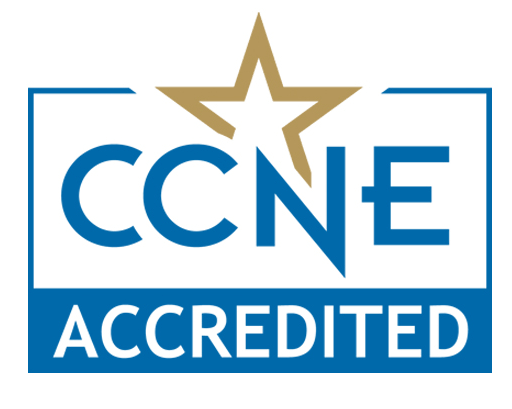Bachelor of Science in Nursing
The RN-BSN program allows Registered Nurses to expand the breadth and depth of their knowledge to advance their professional role as a nurse leader and earn their Bachelor of Science in Nursing (BSN).
The program is designed for the working nurse to improve patient outcomes, influence communities with knowledge of evidence-based practice, patient safety, and quality improvement, and can be completed in as little as 4 semesters.
The BSN program offers the flexibility of asynchronous online lectures combined with hands-on clinical training in real health care settings. This hybrid approach allows students to learn theoretical concepts on their own schedule while gaining essential, in-person experience that builds confidence, clinical skills, and professional competence needed to excel as a nurse.
Upon completion of the program, nurses will be prepared for graduate study and be equipped for leadership positions where increasing levels of education are expected. Graduates of the program are also eligible to apply for a California Public Health Nurse certificate, expanding your opportunities to meet global health care needs within diverse communities.
The RN-BSN program emphasizes quality and safety education for nurses as well as the AACN baccalaureate essentials in developing and guiding the curriculum content. These baccalaureate essentials enable nurses to provide patient-centered quality care in communities and with populations in a diverse and evolving health care system in the role of provider of care, designer/manager/coordinator of care, and member of a profession.
The RN-BSN program is currently only available in California.

The Baccalaureate Degree in Nursing through the Marsha Fuerst School of Nursing at Glendale Career College is accredited by the Commission on Collegiate Nursing Education. (www.ccneaccreditation.org).
Start earning your BSN now!
Marsha Fuerst School of Nursing offers nursing programs at campuses in Glendale, West Covina, San Diego, Bakersfield, Riverside, Las Vegas, and Provo, Utah. Conveniently located near Los Angeles, Burbank, Pasadena, Hollywood, and surrounding communities, we are now accepting applications for upcoming classes at all campuses.
Bachelor of Science in Nursing (RN to BSN) Course Overview
The Bachelor of Science in Nursing (BSN) course at Glendale Career College is designed to build on the training you received to become a Registered Nurse (RN) and teach you additional skills and knowledge you need to help advance your health care career.
The BSN program combines the flexibility of asynchronous learning through online lectures with hands-on clinical training in real health care settings.
During the course of the program, students will participate in hands-on clinical training in real health care settings, providing the opportunity to apply what they’ve learned in the classroom to real-world patient care.

Work Environment
Nurses with a Bachelor of Science in Nursing (BSN) are valued for their advanced knowledge, critical thinking skills, and ability to coordinate complex patient care—often taking on leadership, education, or specialized clinical roles. BSN-prepared nurses can work in a wide variety of professional health care settings and facilities, including:
- Acute Care Hospitals
- Nursing and Residential Care Facilities
- Outpatient Clinics
- Physicians’ Offices
- Emergency Departments
- Labor and Delivery Units
- School Systems
- Public Health Departments
- Correctional Facilities
- Home Health Agencies
- Healthcare Administration Offices
- Military or Federal Health Services
- Nonprofit or Global Health Organizations
Bachelor of Science in Nursing Course Material
The Bachelor of Science in Nursing program is a post-licensure RN to BSN program for nurses who already possess an associate’s degree. Upon completion of the Bachelor of Science in Nursing (BSN) program, the graduates will: Utilize critical thinking to synthesize knowledge derived from nursing, design competent, patient centered professional nursing care for individuals, families and populations across the health continuum in a variety of community based settings and institutions, emphasizing patient safety and quality. After successful completion of the program, nurse generalists will be able to function as providers, designers, leaders, managers, and coordinators of care as well as accountable members of the nursing profession and to pursue graduate level education.
Courses for this program include:
The main purpose of English 300 is to introduce the college student to masterpieces in English literature, drawing from the Norton Anthology of Major Authors. We will explore, analyze, discuss, and reflect upon classic English literature, as well as debate that has persisted for more than 2000 years among philosophers, writers, and critics over the following kinds of questions: What is the nature, function, and value of literature? How can we deal objectively with literary art? How can readers gain greater access to the richness and complexity of literary texts? What criteria do we use to determine a work’s “greatness”? What do we mean when we speak of the “beauty” of a literary work? What is the function of the artist, the critic, and of criticism and theory itself? Can we know the artist’s true intentions in a work? How do we account for multiple interpretations of a text? What is the relationship between the content and the form of a literary work? Does literary language differ from ordinary language?
This course will provide an in depth review of a broad spectrum of psychopathological conditions as defined in the DSM-V. The focus of this review will include the signs & symptoms, and criteria for differential diagnosis. The emphasis of this review will be on comparing and contrasting different theoretical perspectives on each disorder, as well as reviewing the empirical literature in support of these theoretical perspectives. The scientific bases of contemporary theories and research of major psychological disorders will be studied, and the societal implications of mental disorders will be explored.
The course examines the origins of cultural pluralism in the United States emphasizing the evolution of autonomous, interdependent societies coexisting both separately and interdependently. The history of discrimination is reviewed considering diversities of race, ethnicity, gender, disability, socioeconomic status, religion, and sexual preference with reflection on progress toward a more equitable society. Outside preparation and study time, in addition to regular classroom activities, is required to complete the class assignments. The type of outside preparation may take the form of homework assignments, projects, reading, and required studying.
This course is focused on the pathophysiological basis for alterations in health. Examples and theories of disease causation and treatment therapies will be explored. The major objective of this course is to provide an examination of the altered physiological processes manifested in human diseases. By understanding these examples and situations, students will be better able to understand the pathophysiological processes involved in human disease and implementation of therapeutic clinical treatment.
This course is designed to help the student refine the physical assessment techniques of patients across the entire lifespan. In addition the student will refine the physical assessment techniques of the pregnant patient and their unborn child. Assessment of the patient history, mental, and neurological status will also be covered. In addition the student will learn to assess for violence. Finally this course will help the student refine their interview techniques to be able to assess for emotional, social, and cultural health.
This course introduces the student to nursing research methodology concepts and their application. Both quantitative and qualitative research methods will be covered. In addition the student will be introduced to posing a research question, formulating a hypothesis, and stating a research problem. The student will also learn about theoretical frameworks, literature review, data collection and data testing. Finally this course will culminate in the production of a formal research study conducted and presented in written format by the student.
Information technology plays an important role in education and nursing care for quality outcomes and quality of healthcare. This course is closely aligned with the 2008 American Association of Colleges of Nursing’s (AACN) The Baccalaureate Education for Professional Nursing Practice Essential IV: Information Management and Application of Patient Care Technology.
This course is designed to prepare the student or licensed nurse to transition from the role of clinician to manager. It will help the student develop the critical decision-making skills required to be an effective nurse leader in healthcare organizations. All four functions of management will be covered as they relate specifically to nursing leadership roles. Students enrolled in this course will gain the ability to effectively explain the difference between leadership and management. They will also be more prepared to function along the entire management – leadership continuum.
This course delves into the impact of politics, organizations, and resources on high-quality, cost-effective health care. Students will participate in a critical analysis of current legislative issues, economic constraints, and political debates that influence emerging trends in nursing practice and healthcare systems. The course will evaluate the implications of policy and economics on topics such as access, equity, affordability, health disparities, and social justice within healthcare.
This course provides an introduction to selected important topics in biostatistical concepts and reasoning. This course represents a variety of statistical techniques. These techniques include but are not limited to: data collection, sampling principles, and graphical techniques for data display necessary for appropriate analysis and interpretation of data relevant to health sciences. Statistical concepts will be presented and enhanced through the use of numerous “real life” data sets and case studies.
This course introduces Theories and concepts from nursing and public health are presented from a bio-psycho-social perspective to the senior level student. The focus is on the health of the population, as well as, individuals, families, and groups living in the community. The Watson Model of Caring is threaded through the broad topics, which include Community-Oriented Practice, Family, Community Assessment, Epidemiology, and Communicable Disease.
This course prepares the student to deal with contemporary issues facing the nursing profession. It covers issues such as the growth of the profession, credentialing, healthcare employment, legal, safety, bioethics, political processes, research and technology, as they relate to the nursing and nursing roles in healthcare organizations. This course will also explore nurses in the leadership role and help the student develop their ability to effectively work with and respect other healthcare workers.
Bachelor of Science in Nursing Course Activities
Nurses with a Bachelor of Science in Nursing (BSN) provide and coordinate patient care while applying advanced knowledge in leadership, communication, and evidence-based practice. They play key roles in improving patient outcomes, educating patients and families, and guiding health care teams across a variety of clinical and community settings.
BSN Program Clinical Training
During the course of the program, students will participate in hands-on clinical training in real health care settings, providing the opportunity to apply what they’ve learned in the classroom to real-world patient care.
Health Assessment in Nursing
- Conduct comprehensive patient assessments, including health histories, vital signs, and physical examinations across body systems.
- Practice critical thinking and clinical judgment by identifying normal and abnormal findings and documenting accurate assessment data.
- Develop communication and interpersonal skills while interacting with patients to gather health information and build therapeutic relationships.
Leadership in Nursing
- Collaborate with nurse leaders and interprofessional teams to understand management roles, decision-making processes, and effective communication in health care settings.
- Assist in coordinating patient care activities, prioritizing tasks, delegating responsibilities, and promoting teamwork and quality improvement.
Public Health
- Participate in community health outreach, such as health screenings, vaccination clinics, or educational programs promoting wellness and disease prevention.
- Provide patient education and advocacy, helping individuals and families understand health resources, preventive care, and healthy lifestyle practices.
